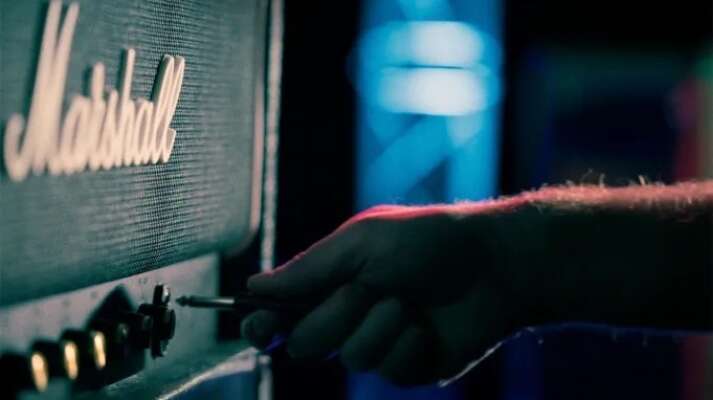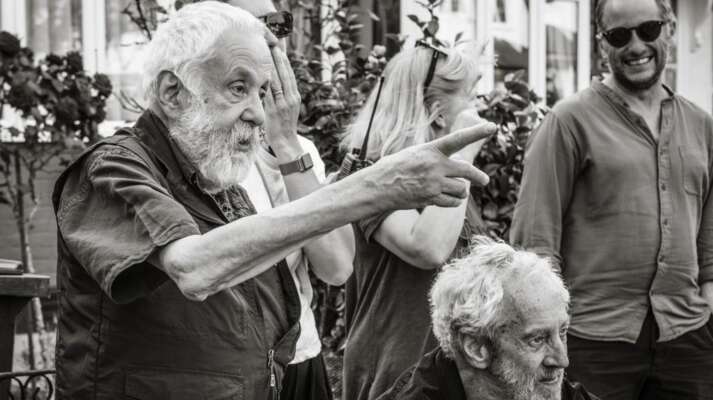Politics in Other Arenas
Games Nations Play
Politics in Other Arenas
Written by Peter Bowen
In PAWN SACRIFICE, the championship game in Reykjavík, Iceland between American legend Bobby Fischer (Tobey Maguire) and Soviet Grandmaster Boris Spassky (Liev Schreiber) garnered so much public and press attention that it was quickly branded the “Match of the Century.” The intense spotlight on the game demonstrated the degree to which sports in the Cold War era had become, to paraphrase military theorist Carl von Clausewitz, politics by other means. Fischer and Spassky became pawns in a larger game that was being played between two superpowers vying for global dominance. Many Americans who had never paid attention to chess were suddenly drawn to their TV screens, as the match unfolded day by day, talking “queen sacrifice” strategies at the water cooler. For them, this was not simply a game of chess; it was a battle between the East and the West. When Henry Kissinger phoned Fischer in Reykjavík to encourage him, he was speaking both as a chess fan and as the U.S. Secretary of State. But this was certainly not the first time that politics entered the sports arena. We look at a history of games whose showdowns were as much political as they were athletic.
 Jesse Owens vs Hitler | Berlin, 1936
Jesse Owens vs Hitler | Berlin, 1936
For Germany’s Nazi party, the chance to host the 1936 Olympics provided an opportunity to both give their regime international legitimacy and showcase the athletic supremacy of the Aryan race. Unfortunately they hadn’t met Jesse Owens. Originally the Nazis, not really wanting to test their luck, had attempted to exclude Jewish and black athletes from the games altogether. But international pushback forced them to scrap that tainted policy, thus clearing the track for Jesse Owens to win four gold medals (the 100- and 200-meter dashes, the long jump and the 4x100 relay team race). Within a few days, Owens, an African-American son of a poor sharecropper, became an international star, and a big schmerzkopfen for the Nazi propaganda machine. The media transformed Owens into the fast and fearless symbol of American values. But Owens, the man, had a different take on what it meant to be an American athlete. "When I came back to my native country, after all the stories about Hitler, I couldn't ride in the front of the bus," Owens remembered. “I wasn't invited to shake hands with Hitler, but I wasn't invited to the White House to shake hands with the President, either."
 America & Germany Enter the Boxing Ring | NYC, 1936 & 1938
America & Germany Enter the Boxing Ring | NYC, 1936 & 1938
In 1936, the same summer that Jesse Owens won big at the Berlin Olympics, a boxing match in New York City became another arena for race and politics. African-American Joe Louis was riding high with a 23-0 record when the German-born Max Schmeling challenged him. No one, including Louis, took the older German boxer seriously, so when he emerged from the ring victorious, the German government saw a chance to land a solid propaganda punch. Hitler sent Schmeling’s wife flowers, congratulating her on the “wonderful victory of your husband, our greatest German boxer.” Two years later, when the two fighters faced off for a rematch, the political stakes had increased exponentially.

One Boston writer exclaimed, “Louis represents democracy in its purest form: the Negro boy who would be permitted to become a world champion without regard to race, creed, or color…Schmeling represents a country that does not recognize this idea or ideal.” The Yankee Stadium event became the hot ticket of the summer with stars and figureheads like Clark Gable, Gary Cooper, Gregory Peck, and J. Edgar Hoover in the audience, and thousands more following the fight on the radio. This time, much to the relief of the U.S., Louis won, sending a badly injured Schmeling to the hospital. As much as both Germany and the U.S. wanted this match to be politics by other means, the two fighters just wanted to box. Years later, Schmeling remarked, "Looking back, I'm almost happy I lost that fight. Just imagine if I would have come back to Germany with a victory. I had nothing to do with the Nazis, but they would have given me a medal. After the war I might have been considered a war criminal."
 Blood in the Water | Melbourne, 1956
Blood in the Water | Melbourne, 1956
As the Hungarian water polo team trained in their mountain compound for the 1956 Melbourne Olympics, they knew little of the tragic events unfolding in Budapest below. It wasn’t until they arrived in Australia for the Olympics in November that the Hungarian athletes learned what had happened. In October, to counter massive student protests, the USSR clamped down hard, sending in 200,000 Russian troops and killing more than 2,500 Hungarians. The ill-fated Hungarian revolution was followed by a wave of arrests that broke down the nation’s spirit. For the Hungarian water polo team, their scheduled match against the Russian team was going to be their one chance to strike a blow for their homeland. The captain of the Hungarian team refused to shake hands with the Soviet team’s captain. One of Hungary’s top players, Ervin Zador, remembers, “The game meant so much to us. We had to win the gold medal. We were playing for ourselves, for our families back home, for our country." With a minute left in the game and the Hungarians leading 4-0, the Russian team angrily struck back. A Russian player jumped up out of the water and punched Zador so hard that the pool went red, leaving the Hungarian with a cut needing 8 stitches and an audience seeking blood. Local police had to be called to get the Russians back to their locker room safely. Having won the gold medal, many Hungarians were resigned to the fact that they had lost the war back home, and used the Olympics as way to defect. Only 38 of the 83 athletes returned to Hungary.
 Czech Payback | Stockholm, 1969
Czech Payback | Stockholm, 1969
At the 1969 International Ice Hockey Federation (IIHF) games in Stockholm, the Czech hockey team took to the ice with a vengeance. The games, which were originally slated to take place in Prague, had to be moved after the USSR had invaded Prague. In August 1968, over 500,000 Soviet troops marched into Czechoslovakia to squash the burgeoning democracy movement known as the Prague Spring. Over 100 civilians died and many more were seriously wounded in what would be called the Warsaw Pact Invasion. The Czech hockey team saw the tournament in Sweden as a chance for payback for what happened the year before. “We said to ourselves, even if we have to die on the ice, we have to beat them,” the Czech team captain Jozef Golonka explained. And after a grueling match, the Czechs did just that––twice. While the Czech team broke a record by being the first team to beat the Russians twice in one IIHF event, the Czechs were so exhausted that they only took a bronze medal for the entire event. But their wins reverberated far beyond Stockholm. Up to a half million Czechs crowded the streets of Prague in celebration, with some quickly turning to protest and others attacking Soviet military buildings.
 Ping Pong Diplomacy | China, 1971
Ping Pong Diplomacy | China, 1971
If nations have used sports to extend conflict, in a few cases, like in China in 1971, the opposite has occurred. China, which had been closed off to Americans and American influence for years, occasionally interacted with the U.S. at Ping Pong games around the globe. In Nagoya, Japan, an accidental friendship helped thaw years of isolation. When the U.S. table tennis player Glenn Cowan missed his team’s bus, the Chinese team offered him a seat on theirs. During that short trip, Cowan struck up an awkward conversation with Chinese player Zhuang Zedong, who, out of courtesy, presented his new American friend a silk-screen painting of the Huangshan Mountains. After Cowan stepped off the bus clutching his new gift, the international press was there to snap photos and ask pointed questions of the young athletes. As such, a news article in which Cowan expressed a sincere interest to visit China made it all the way to Beijing. China’s leader Mao Zedong, having read about the encounter, supposedly remarked, “This Zhuang Zedong not only plays table tennis well, but is good at foreign affairs, and he has a mind for politics.” Within a matter of days, a group of 9 players and six others stepped onto the Chinese mainland, thus reversing an isolation policy that few believed would ever change. The next year, President Richard Nixon became first American president ever to visit Communist China.
 Three Seconds To Victory | Munich, 1972
Three Seconds To Victory | Munich, 1972
While the massacre of 11 Israelis at the 1972 Olympics in Munich dominated world headlines, a different political scandal left the U.S. basketball team humiliated and angry. Since 1936, the Americans had been invincible in basketball at the Olympics, sweeping up seven gold medals along the way. That streak was stopped in its tracks in 1972 when the Russians won the gold medal. It was an unexpected––and, according to some, illegal––win. With the Russians setting the pace early in the game, the Americans were shocked to find themselves down by 10 points close to the end. Only a last minute rally allowed the Americans to regain lost ground. With 3 seconds to play, the game rested on the shoulders of Illinois State University player Doug Collins, who, having made two free throws, gave the U.S. a 50-49 lead. But before Team USA could do a victory dance, a series of technical issues required Olympic officials to reset the final 3-second clock three different times. During the last 3-second reset, the Russians got one more basket, shifting the score to 51-50 in their favor. Team USA was stunned, and immediately appealed the clock resetting and the final score. But when the Olympic jury stood by their call, the U.S. team walked away, refusing their silver medal, which to this day remains locked up in a vault in Lausanne waiting to be claimed. Supposedly President Richard Nixon told aides, “Well, we got screwed.” In Moscow, joy erupted. Soviet General Secretary (and supposed atheist) Leonid Brezhnev told Henry Kissinger, “I now know that there is a God above.”
 Miracle on Ice | Lake Placid, 1980
Miracle on Ice | Lake Placid, 1980
The most celebrated sports win for the U.S. in the Cold War appropriately took place on the ice. In 1980, a rag-tag team of college hockey players banded together to beat the Russians at the Winter Olympics in Lake Placid, NY, a game that was quickly dubbed by sports pundits as the “miracle on ice.” To a large degree, the miracle’s engineer was Herb Brooks, a University of Minnesota coach who was chosen to lead the U.S. Olympic hockey team in 1980. Having hand-picked his team, Brooks transformed his young Americans with a mix of drill sergeant brutality and messianic vision to believe that they could actually win. Two weeks before the Olympics, the USSR trounced the American team during an exhibition match in New York City. While many sports journalists saw this defeat as a harbinger of things to come, Brooks saw it as a step towards victory, noting, “Sometimes a good kicking is good for a quality athlete and a quality team.” Even the TV companies covering the Olympics thought so little of the Americans that they didn’t even bother to air the game live, opting instead to put it on tape delay. When Team USA beat the Russians and went on to win the gold, Brooks was the least surprised person in the auditorium. Before the game he’d written out this simple message for his team: "You were born to be a player. You were meant to be here. This moment is yours." For many Americans, this unexpected upset was a real shot in the arm. True, the Russians had invaded Afghanistan, hostages were still being held in Iran, and gas prices were at a record high. But, on the other hand, the US had beaten the Russians at hockey. After the game, Brooks told President Carter on the phone, “It just proves our life is the proper way to continue.” The meaning of this game, however, has outlived the Cold War. In 1999, Sports Illustrated crowned the hockey game the Top Sports Moment of the 20th Century. And the story has been adapted into film and TV several times, including the 2004 Disney hit Miracle.
 Red Army | USSR, 1970s – 1990s
Red Army | USSR, 1970s – 1990s
If the 2004 film Miracle celebrates the one-time triumph of the U.S. hockey team, Gabe Polsky’s doc Red Army focuses on the ongoing dominance of the Russian hockey team, both as a sports team and a political propaganda machine. Using one player, Slava Fetisov, as a spokesperson, Red Army follows the legacy of the Russian Five, the unbeatable team of Fetisov, Sergei Makarov, Vladimir Krutov, Igor Larionov and Alexei Kasatonov that won nearly every major competition from the 70s to the 90s (except, of course, for Lake Placid). And while these athletes redefined the game of hockey, they were themselves defined by the Soviet state to be emissaries of communist ideology. In digging into the history of what hockey meant to the USSR, Polsky quickly realized, “it has nothing to do with hockey.” It was about “a larger story using hockey as a window into the story of the rise and fall of the Soviet Union, the Russian people, with friendships and betrayals, paranoia and oppression, and the meaning of sports to people and nations around the world, and how sports was used as a political tool.” In the end, Polsky came to understand, that the Russian Five, like so many athletes before them, “were pawns in a much larger kind of system.”
 Out at the Olympics | Sochi, 2014
Out at the Olympics | Sochi, 2014
In 2014, the U.S. and Russia were no longer embroiled in a cold war, but that didn’t mean politics was no longer being played at the Olympics. On June 11, 2013, more than half a year before the world would descend on Sochi for the Winter Olympics, Russia passed a federal law for “for the Purpose of Protecting Children from Information Advocating for a Denial of Traditional Family Values". In short, any positive––or even neutral––representation of LGBT people was now against the law. What this law meant for nations with LGBT athletes preparing to attend the Sochi Olympics was very much up in the air, as was the more strategic question of how governments who found the new Russian law offensive could oppose it. In December 2013, just months before the games were to begin, President Barack Obama responded to the Russian law by appointing two out athletes––tennis legend Billie Jean King and hockey star Caitlin Cahow––to represent the United States. A third delegate, figure skater Brian Boitano, came out as gay after being selected. Boitano explained, "I don't feel that I can represent the country without revealing this incredible side of myself…This is an important moment, and to represent my country in Russia, it's a platform that is so important for me."


